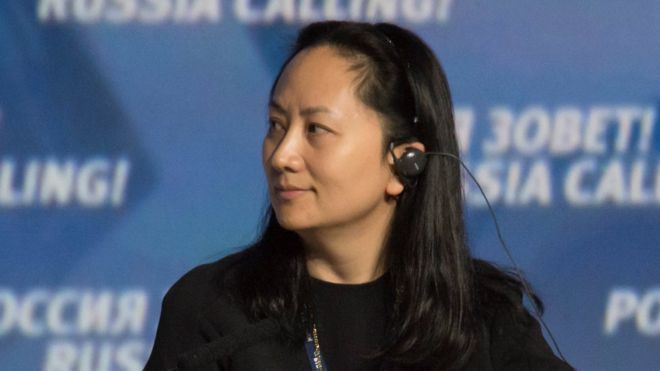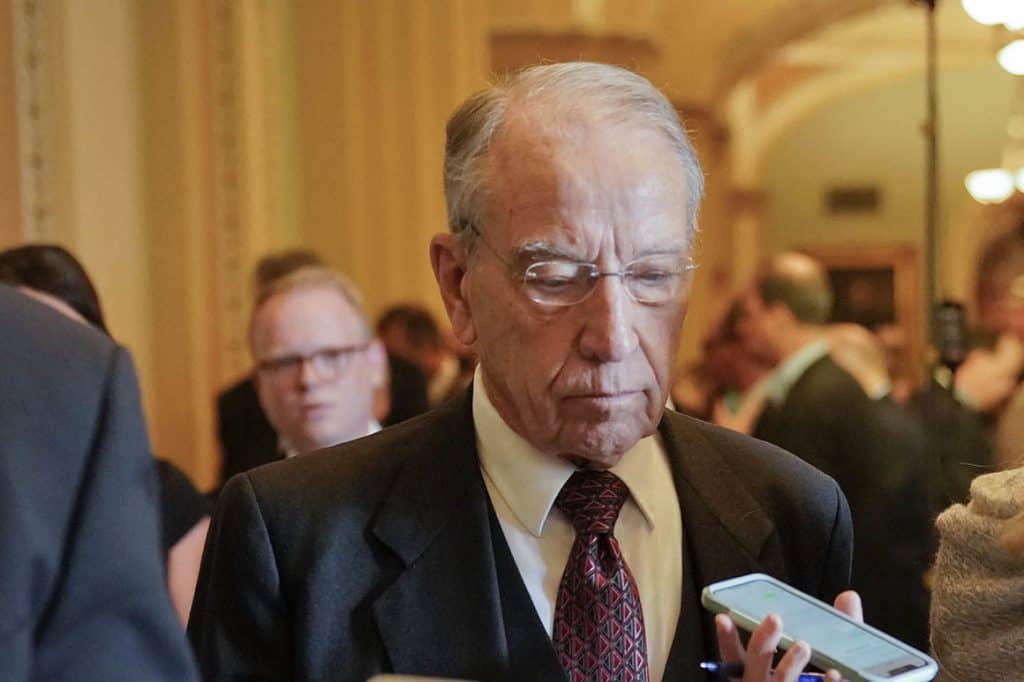Trade correspondent L.C. reports:

With the detention in Canada of Huáwéi (华为) Chief Financial Officer Mèng Wănzhōu (孟晚舟), the US government has taken a major step in its fight against abuses by mainland Chinese companies. The US administration’s anti-Chinese national security measures are widely popular across the political spectrum and internationally. But this is not the case with its Section 232 tariffs — purportedly taken in the name of national security but really just plain old protectionism.
It is easy to see how the US legal action against Huawei could worsen US-China tensions to the point that they undermine the upcoming trade talks. It is not easy to see, however, how the Huawei dispute could be settled through a trade-off of concessions by each side. This is not only because it is in the court system – that is, it is a matter to be decided on legal and not political grounds – but also because it pertains to the fundamental conflict over China’s tech development. The US accuses China of advancing itself by abusing trade norms, espionage, and cyber-theft. Huawei has long been under investigation for the latter offenses. The US government has been investigating the company since 2010, and both the US government and military are banned from using its equipment. Washington is meanwhile urging other countries to take similar steps.
With the competition to develop the first globally used 5G networks in full swing, Huawei has a leading role in China’s effort to leapfrog the US to 5G leadership. Any crimping of the company’s ability to do so is a threat to President Xi Jinping’s signature “Made in China 2025” program. Huawei’s Meng has been under investigation for export violations since 2016. Last April the US opened a criminal case regarding Huawei’s sales to Iran of items with US components that are under US export controls. Ms. Meng, the target of that legal action, is the daughter of Huawei founder Rén Zhèngfēi (任正非). The fact that Huawei’s Ren is close to Chinese President Xí Jìnpíng (习近平) and himself a politically powerful Communist makes it difficult for Xi to refrain from fighting back.
But the US would also have trouble backing down because it has been urging other countries to shun using Huawei and ZTE equipment. That appeal appears to have succeeded so far with Australia, New Zealand, and possibly the UK and Japan. Huawei and ZTE are intimately tied to the Chinese military and government and their telecom and network technology can and probably has been used for government espionage, surveillance, intellectual-property theft.
In the US, a bipartisan effort has already begun on Capitol Hill to warn the President not to give in, as he did last spring in the case of ZTE in response to a personal appeal from President Xi. Just last week, senators called for a new investigation into whether ZTE has violated other US sanctions.
There are fears that China might retaliate by taking a US businessman into custody. US companies are also concerned that Chinese retaliation could take the form of excluding them further from operating in China and spur Chinese efforts to replace all US technology with indigenous products, though that wouldn’t be easy.
The White House’s strategy for its trade relationship with China in response to the arrest is unclear. In a December 9th TV interview, economic adviser Larry Kudlow said he doesn’t “know how it will turn out” but stated that the arrest is on a separate track from the trade talks.
The main charge against Meng is that from 2009-2014 she hid the relationship between Huawei and Skycom to defraud banks which thought they were funding transactions with Huawei but were in fact funding Skycom transactions with Iran. Some US banks were involved in clearing transactions for Huawei that in reality were transactions on behalf of Skycom’s Iranian operations, and she concealed this fact because they violated US sanctions law.
Grassley revives threat of curbing Trump’s trade power

Sen. Chuck Grassley (R-IA), who is about to take over as Finance Committee Chairman, has been wrestling with the unpopular side of the administration’s trade powers. He has been telling reporters that he is interested in moving a bill to curb the President’s unilateral trade authority. He indicated his interest in such legislation in a December 2nd interview with Axios and December 4th comments with reporters. According to Axios, Grassley said that “he may try to make it harder for the president to impose new tariffs” and that “he would take a favorable view of legislation limiting the administration’s power to impose tariffs to protect national security.” Specifically, Grassley stated, “Maybe the definition of national security or maybe the conditions under which national security could be used as an excuse is a little wide” under the authority that Congress has granted to the President under Section 232.
It is possible that Grassley raised the threat to pressure the President to lift the steel and aluminum tariffs and not proceed with the auto tariffs. There are signs that members of both parties are becoming increasingly worried that the President will impose automotive tariffs. This will hurt the domestic auto industry as well as farmers and many other industries that will be subjected to foreign retaliation.
The White House has other incentives to remove the metals tariffs on Canada and Mexico:
- The second most powerful Senate Republican, Sen. John Thune (R-SD), has long expressed frustration at Administration trade policy, especially as it impacts farmers.
- Some legislators threaten to vote against the USMCA if they remain in place.
- Removing the tariffs on Japan and the EU would set a friendlier environment for upcoming talks with these important trading partners.
- The tariffs face very tough litigation over them at the WTO.
If the President moves ahead to impose Section 232 tariffs on automotive imports, the situation with China deteriorates, and/or the talks with Japan and the EU don’t appear to be progressing toward opening agricultural markets, then many legislators, not only those from farm states, would likely decide to support bills to take back authority over trade.
US auto-makers say that the steel and aluminum tariffs and consequent price hikes are causing them immediate harm. The US auto industry has consistently opposed slapping new tariffs on vehicle imports. The move would bring almost no support from any sector of US industry or politics — or Defense Secretary Jim Mattis, who has taken the position that automotive tariffs would be even less justifiable than the metals tariffs that the Pentagon opposed.
But as the President apparently made clear in his meeting with German auto executives, tariffs against their imports are by no means off the table. Without any veneer of a security threat, auto tariffs would be seen as even more WTO-illegal than the steel and aluminum tariffs now being challenged by many countries at the WTO. Further embittering US allies against the US would not be very conducive to promoting allied boycotts against Huawei, ZTE, and other Chinese miscreants. Nor would undercutting the WTO.

Leave a Reply